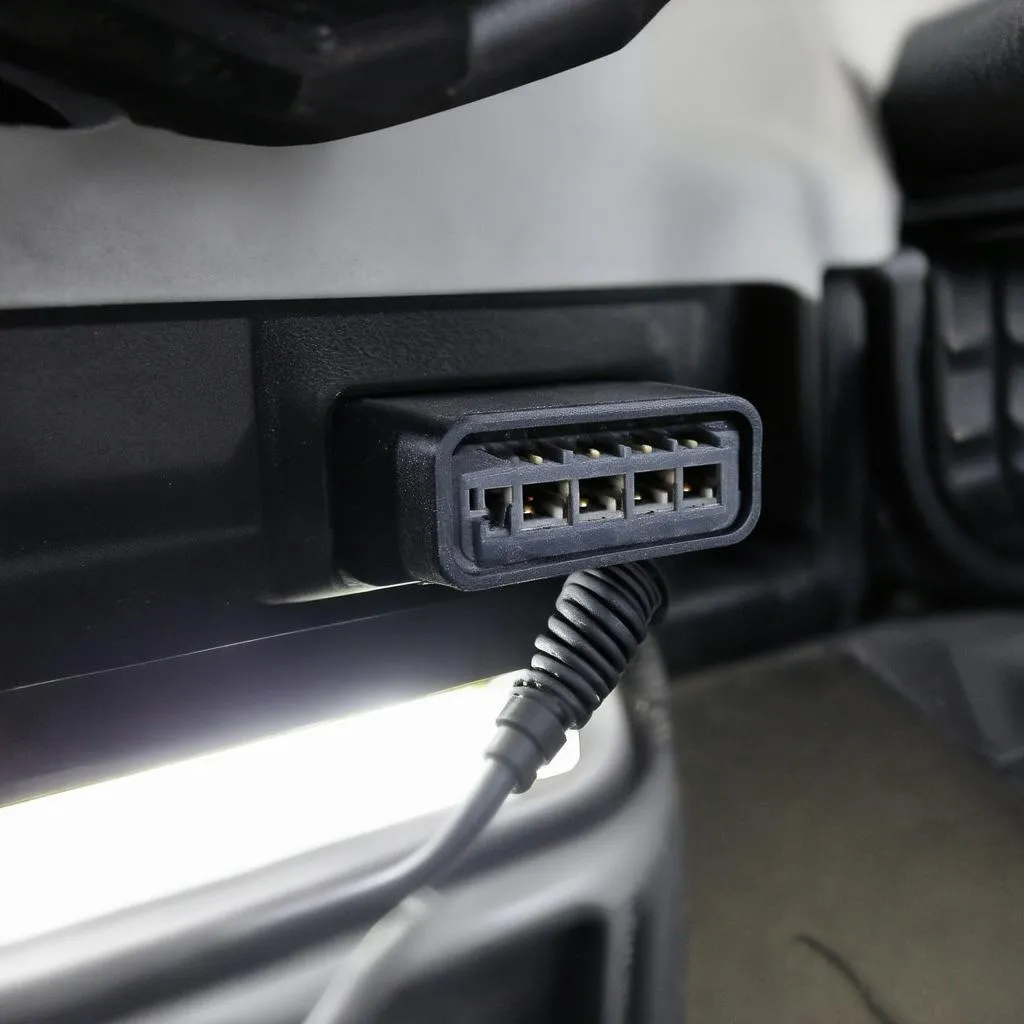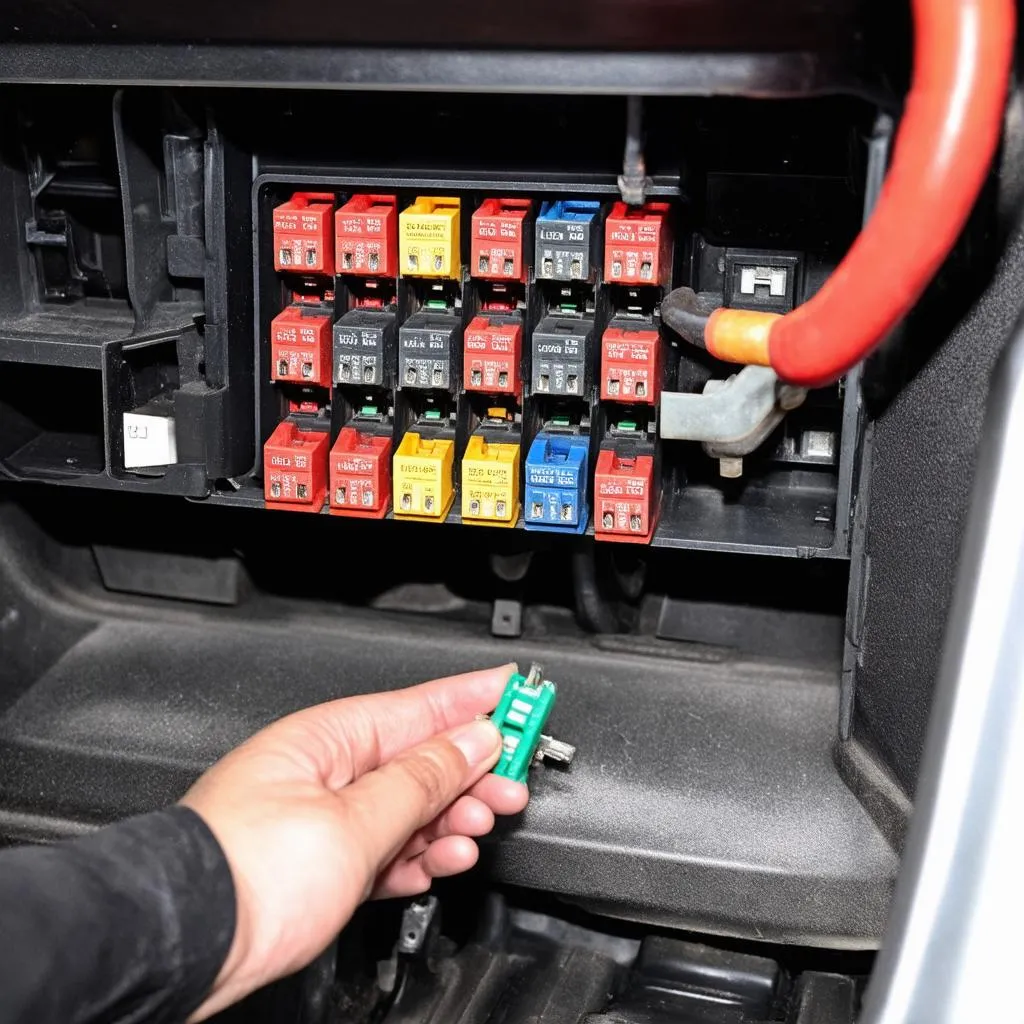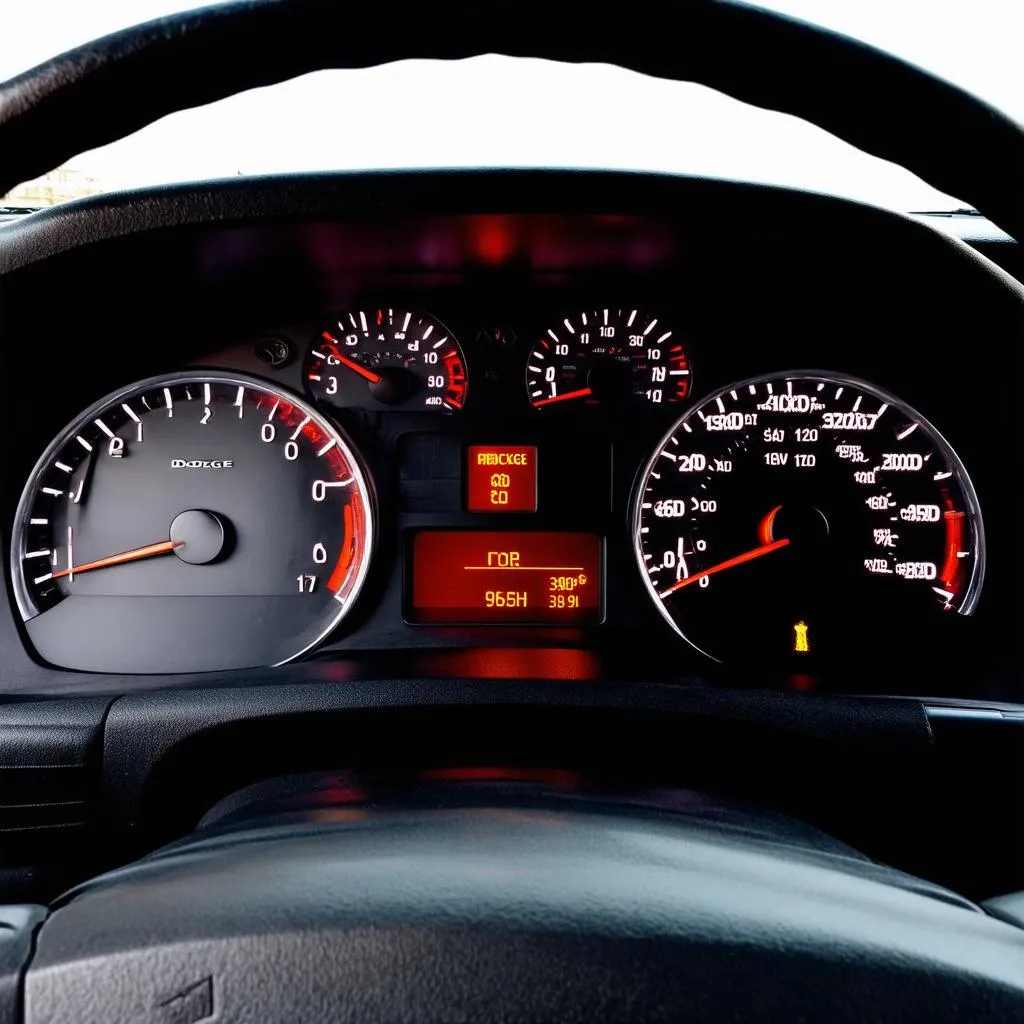“Where’s that darn OBD port?” – A phrase whispered in frustration by countless Dodge Ram owners. We’ve all been there, grappling with a mysterious check engine light and the clock ticking before that important road trip.
Finding your OBD port shouldn’t feel like a treasure hunt. In this article, we’ll demystify the location of the OBD port on your trusty 2004 Dodge Ram and, more importantly, guide you to the often-overlooked culprit: the OBD port fuse.
Decoding the Significance: Why Your OBD Port Matters
Before we dive under the dash, let’s understand why this little port is so crucial. The OBD port, or On-Board Diagnostics port, is the gateway to your truck’s inner workings. It allows mechanics, both professional and DIY enthusiasts, to:
- Read Diagnostic Trouble Codes (DTCs): These codes are your truck’s way of telling you something’s amiss.
- Monitor Real-Time Data: Imagine being able to see your engine’s performance metrics live – fuel pressure, oxygen sensor readings, and more.
- Perform Advanced Diagnostics: For those tougher-to-diagnose issues, the OBD port allows for specialized tests and procedures.
 OBD port
OBD port
The Elusive Fuse: The Silent Saboteur of Your OBD Port
Now, imagine this: you’ve bravely ventured under your dashboard, located the OBD port (more on that later), but your trusty code reader just won’t connect. This is where the OBD port fuse often enters the picture.
What is a Fuse and Why Should I Care?
Think of fuses as the guardians of your truck’s electrical system. These tiny components are designed to sacrifice themselves, breaking the circuit, if there’s a sudden surge of electricity. This prevents more serious damage to expensive components.
A blown OBD port fuse can render your diagnostic port completely useless, leaving you in the dark about your truck’s health.
Common Symptoms of a Blown OBD Port Fuse:
- No power to the OBD port: Your code reader or scanner doesn’t turn on when connected.
- Intermittent connection: The scanner connects sporadically or drops out during diagnostics.
- Error messages on your scanner: You might see messages indicating a communication error.
Locating the OBD Port and its Guardian Fuse:
For a 2004 Dodge Ram, your OBD port is typically located under the driver’s side dash, near the steering column. It’s a small, trapezoidal port, often covered by a plastic cap.
Now, the fuse. Unfortunately, there’s no one-size-fits-all answer. Fuse box locations and fuse designations can vary even between different trim levels of the same vehicle model.
Your Best Bets:
- Owner’s Manual: This should be your first stop. It often contains a detailed fuse box diagram.
- Online Forums: Websites and forums dedicated to Dodge Ram enthusiasts can be goldmines of information.
- Automotive Parts Store: A quick visit to your local auto parts store can be helpful. Their staff can often point you in the right direction.
Expert Insight: “Always disconnect the negative battery terminal before replacing any fuses,” advises veteran mechanic Robert Thompson, author of “The Complete Idiot’s Guide to Auto Repair.” “This prevents accidental shorts and potential damage to your vehicle’s electrical system.”
Troubleshooting Beyond the Fuse:
If you’ve replaced the fuse and you’re still facing issues, don’t despair. Here are a few additional culprits:
- Faulty OBD Port: Over time, the port itself can become damaged or worn out.
- Wiring Issues: A loose or damaged wire between the fuse box and the OBD port can disrupt the connection.
- Code Reader/Scanner Problems: Sometimes, the issue lies with your diagnostic tool itself.
Finding Harmony: The Feng Shui of a Smooth-Running Truck
While not directly related to fuses and OBD ports, maintaining your vehicle’s well-being can be seen as a form of automotive Feng Shui. Regular maintenance, prompt attention to warning signs, and a clean, organized interior can all contribute to a harmonious driving experience.
 Fuse box
Fuse box
FAQs – Your Burning Questions Answered:
Q: Can I drive my Dodge Ram with a blown OBD port fuse?
A: Absolutely! A blown OBD port fuse won’t affect your truck’s drivability. It simply means you won’t be able to use your diagnostic tools.
Q: What size fuse do I need for the OBD port?
A: This varies, so consult your owner’s manual or check the fuse box cover for the correct amperage rating.
Q: I replaced the fuse, but it blew again immediately. What now?
A: This usually indicates a short circuit somewhere in the system. It’s best to consult a qualified mechanic in this case.
Your Journey Continues: Explore More at techcarusa.com
For those eager to delve deeper into the world of automotive diagnostics, check out our comprehensive article on “Understanding OBD-II Codes: A Beginner’s Guide” (link to internal article on OBD-II codes).
 Dashboard
Dashboard
Need a Helping Hand? We’re Just a Message Away!
Troubleshooting car problems can be frustrating. If you’re feeling stuck or just want expert guidance, don’t hesitate to reach out to us on WhatsApp at +84767531508. Our team of automotive specialists is available 24/7 to assist you with all your diagnostic tool needs.
Remember, a little knowledge goes a long way. By understanding your vehicle’s electrical system and knowing where to look, you can tackle minor issues like a pro. Happy driving!